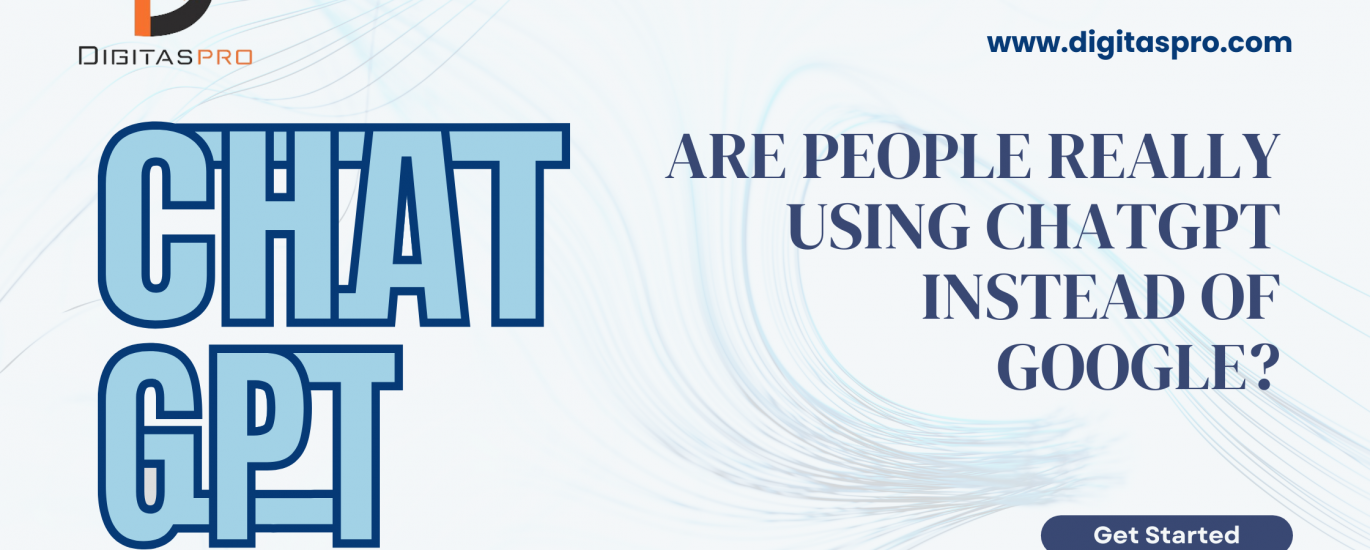The way we interact with information online is undergoing a significant shift. Traditional search engines, dominated by giants like Google, have long been the primary gateway to online knowledge. However, the emergence of large language models (LLMs) like ChatGPT is shaking things up.
This blog post delves into the question: Are people really using ChatGPT instead of Google? We’ll explore the strengths and weaknesses of each platform, analyze user trends, and discuss the potential future of information retrieval.
The Reign of Google Search: Power and Familiarity
Google Search has established itself as the de facto method for online research. Its strengths include:
- Massive Index: Google boasts an unparalleled index of the internet, crawling and indexing billions of webpages to provide the most comprehensive search results possible.
- Sophisticated Algorithms: Google’s complex algorithms analyze user queries, search intent, and past behavior to deliver highly relevant search results.
- Speed and Efficiency: Search results appear instantaneously, making Google a lightning-fast tool for finding specific information.
- Versatility: Google Search caters to diverse needs. Users can find factual information, news articles, images, videos, and even perform complex calculations.
- Established User Base: Years of dominance have made Google Search a household name. Users are comfortable with the interface and understand how to formulate effective search queries.
The Rise of ChatGPT: Conversation Over Keywords
ChatGPT, on the other hand, represents a new paradigm in information retrieval. It utilizes a conversational approach, allowing users to interact with information in a more natural and intuitive way. Here are some of ChatGPT’s advantages:
- Natural Language Processing (NLP): ChatGPT’s strength lies in its ability to understand and respond to natural language. Users can ask questions in a conversational format, eliminating the need for precise keyword optimization.
- Direct Answers and Summaries: ChatGPT often provides direct answers to questions or concise summaries of information, saving users time by eliminating the need to sift through multiple websites.
- Creative Text Generation: ChatGPT excels at generating different creative text formats, like poems, code, scripts, musical pieces, emails, and letters. This can be helpful for brainstorming ideas or completing specific tasks.
User Trends: A Matter of Preference
While ChatGPT has gained significant traction, it hasn’t dethroned Google Search as the undisputed king. Here’s a breakdown of current user trends:
- Complement, Not Replace: Many users view ChatGPT as a complementary tool to Google Search. They might use Google to find relevant websites and then use ChatGPT to get a quick summary or ask specific questions about the content.
- Task-Specific Preferences: The choice between Google and ChatGPT often depends on the task at hand. For factual information or complex research, Google Search reigns supreme. Conversely, for quick summaries, creative writing prompts, or casual exploration, ChatGPT might be preferred.
- Accessibility Concerns: ChatGPT currently has limitations regarding access to real-time information and outdated data sets. Google Search, on the other hand, provides more up-to-date results due to its constant crawling and indexing.
The Future of Information Retrieval: A Dynamic Landscape
The battle between traditional search engines and conversational LLMs like ChatGPT is just beginning. Here’s a glimpse into what the future might hold:
- Hybrid Search Engines: We might see a convergence of search engine and LLM capabilities. Google could integrate features that allow users to ask questions in a natural language format, while ChatGPT could improve its access to real-time information.
- Focus on Personalization: Both Google and ChatGPT are likely to prioritize user personalization. Search results and responses could be tailored to individual preferences and past behavior, leading to a more customized information retrieval experience.
- Voice Search Integration: The rise of voice assistants like Siri and Alexa indicates a growing preference for voice-based information access. Both Google and ChatGPT could integrate seamlessly with these platforms, providing hands-free information retrieval.
Conclusion: A World of Choice
The emergence of ChatGPT signifies a shift in how users interact with information online. While it’s unlikely to replace Google Search entirely, it offers a compelling alternative for users who prefer a more conversational approach.
Ultimately, the power lies with the user. We now have a wider range of tools at our disposal, catering to different needs and preferences. Whether you prefer the tried-and-true efficiency of Google Search or the conversational ease of ChatGPT, the future of information retrieval is brimming with exciting possibilities.


